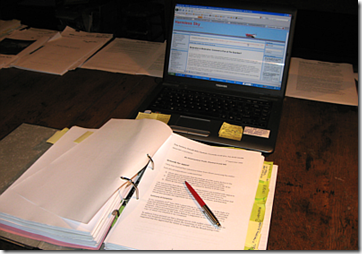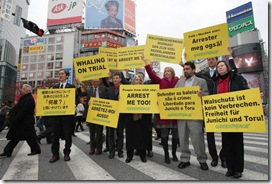Melanie Phillips of the Daily Mail has obtained a statement from the BBC on what is beginning to be known as ‘28gate’, although ‘BBC-Gate’ would seem to be more user-friendly. The statement is very interesting, but probably not in the way in which the BBC press department intended.
Here it is:
‘There has been no censoring of climate change reporting. We have attempted to report proportionately. Indeed The BBC Trust’s science review of last year praised our coverage. The event certain bloggers have referred to was one in a series of seminars for BBC editors and managers. They were a forum for free and frank discussion of global issues and not created to produce programming nor set story direction. They involved external contributors from business, science and academia. Seminars such as this do not set editorial policy. They can over time and along with many other elements help inform our journalism through debate and access to expertise, but the setting of our editorial policies is a formal process involving BBC Boards and the BBC Trust.
‘The BBC has refused disclosure on the basis that the documents were held for the purposes of journalism, art or literature, and are therefore outside the scope of the BBC’s designation under FOI Act. The Information Tribunal has unanimously upheld this. The seminar was conducted under the Chatham House Rule to enable free and frank discussion, something that is necessary for our independent journalism.
‘IBT were one of a range of organisations and different voices the BBC worked with in delivering these seminars. They are no longer involved. The events were considered against our editorial guidelines and raised no issues about impartiality for the BBC or its output.’
In passing, the straw man argument set up in the first paragraph – that the BBC is being accused of ‘censoring climate change reporting’ – looks like an attempt to avoid the real issues. The accusation is that the BBC has made a false claim that editorial policy on climate change was informed, and presumably underpinned, by a ‘seminar with the best scientific experts’ when it is now clear from Maurizio Morabito’s research (omnologos blog) that nothing could be much further from the truth. They are also being accused in the blogosphere, and now in the MSM too, of expending a lot of time and money on trying to cover up this fact.
But the most startling assertion in the BBC statement is that the seminar was not intended “to produce programming nor set story direction.” Helen Boaden’s witness statement for the Tribunal hearing does in fact say much the same thing, but goes on to identify output that the seminar did influence, including Dr Ian Stewart’s notorious three part hatchet job on climate sceptics, Earth: The Climate Wars.








Recent Comments